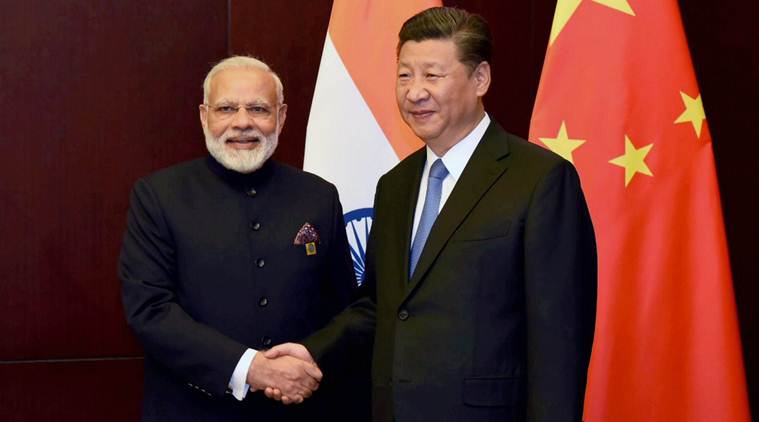
(TibetanReview.net, Jun11, 2017) – Over a meeting Jun 9 between Prime Minister Narendra Modi and President Xi Jinping on the sidelines of the Shanghai Cooperation Organisation (SCO) Summit being held in Astana, the capital of Kazakhstan, India and China have underscored the need to respect each other’s “core concerns”. The two sides have agreed to hold more high-level interactions through institutionalised exchanges and strategic communication, and to evolve policy alignment to appropriately handle their disputes, reported India’s PTI news agency Jun 10.
The summit-level meeting between Modi and Xi was the first after India declined an invitation to participate in the high-profile Belt and Road Forum held in Beijing last month. It was India’s mark of protest over the China-Pakistan Economic Corridor (CPEC), part of China’s ‘Belt and Road’ Initiative, which passes through Gilgit and Baltistan in Pakistan-occupied Indian territory of Kashmir.
India’s Foreign Secretary S Jaishankar has said, briefing reporters after the meeting, that at a time of global uncertainty, India-China relations were a factor of stability. “I think there was also an understanding (between Modi and Xi) that where we have differences, it was important that those differences should not become disputes, and in fact they were handled well, could even be opportunities,” he was quoted as saying.
China was reported to have agreed to open more routes for Indian pilgrims to the Hindu holy shrine in the Kailash Mansarovar mountains.
India and China had differences over a series of issues in recent times, with India’s arch-rival Pakistan being a significant factor in some of them. Apart from the CPEC, one remains China’s staunch opposition to India’s application to join the Nuclear Suppliers Group (NSG), a 48-nation body which governs the global supply of nuclear materials and technology, despite strong support New Delhi enjoys from most members of the group. On the other hand, China is seen as being supportive of Pakistan’s application to join the group despite its widely reported record as a nuclear proliferator.
China has also consistently prevented India’s move at the UN Security Council to blacklist Pakistan-based terrorist leaders accused of major attacks on Indian soil.
China also severely criticized New Delhi for allowing a visit to the border state of Arunachal Pradesh in April this year by Tibet’s exiled spiritual leader, the Dalai Lama, calling it a disputed territory and a part of Tibet. The Dalai Lama only seeks autonomy for his Chinese ruled homeland, ensuring the protection of its historical cultural and ethnic identity, but Beijing insists he seeks to split Tibet from the People’s Republic of China and refuses to talk with him.


